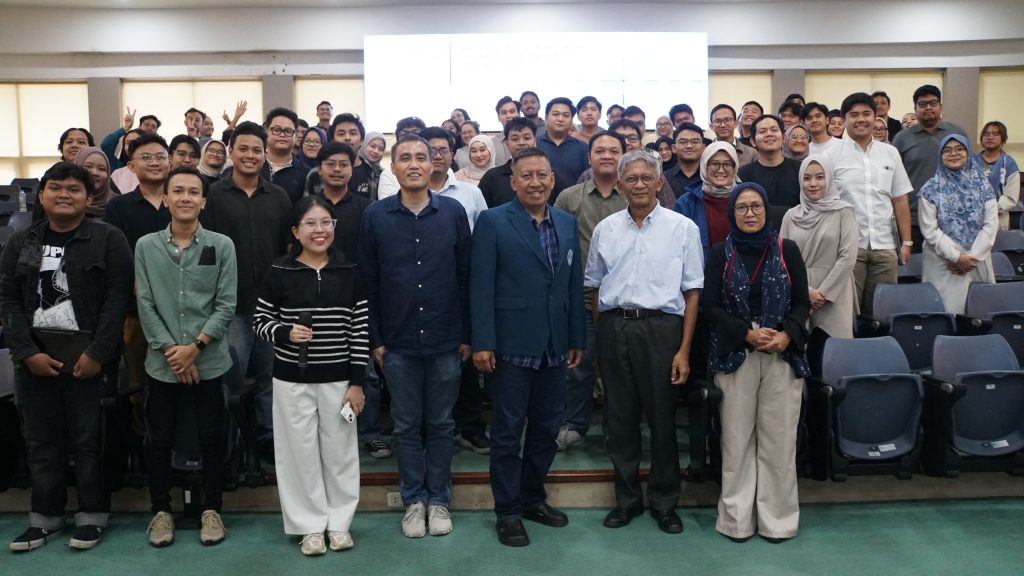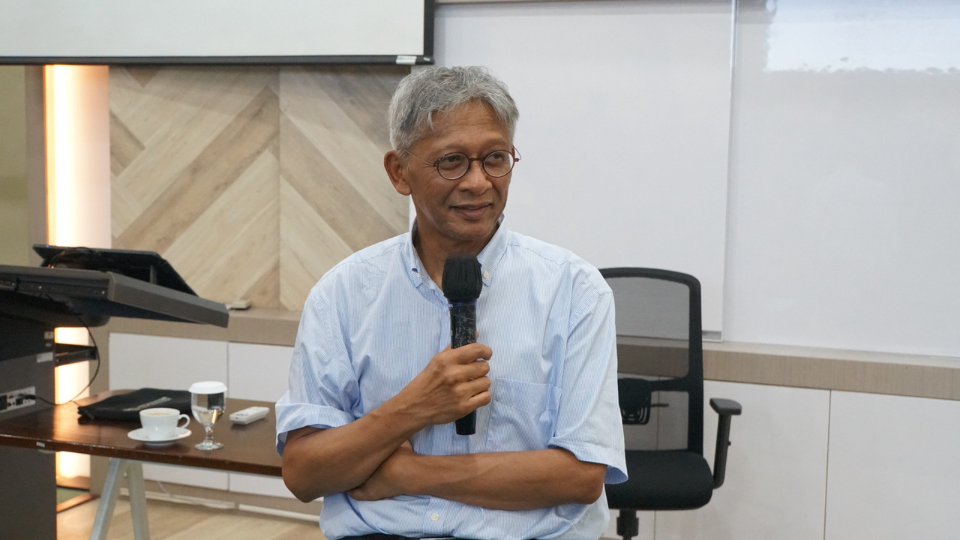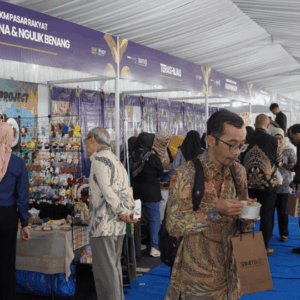Digital transformation comes with major challenges, even for one of the world’s largest environmental institutions, the United Nations Environment Programme (UNEP). Saiful Ridwan, former Chief of Enterprise Solutions at UNEP, shared his experience leading digital initiatives at the agency during the Expert Talk event hosted by the SBM ITB, in Bandung (28/4).
Saiful, an alumnus of ITB’s Architectural Engineering program, explained that many of UNEP’s internal systems rely on outdated legacy platforms that lack integration. Digital resources are often limited, as project funding tends to be earmarked for specific activities and does not allow for flexible, long-term investment.
He stressed that within the UN system, no project happens overnight. Every initiative must undergo rigorous planning, extensive cross-departmental and international discussions, and consensus-building.
The UN budget is divided into several major categories. The majority (40–70%) is allocated for program implementation, such as training, technical assistance, and grant distribution to local partners. The remainder (20–40%) covers personnel costs, including international staff salaries, consultant fees, benefits, and social security.
Further obstacles include fragmented data from diverse sources, including governments, satellites, and research institutions, along with technological disparities among offices located in different countries. A shortage of digital talent, particularly data scientists, and the need to protect sensitive environmental data further complicate the transformation process.
Despite these challenges, UNEP has successfully developed innovative solutions that have become models for other international organizations. These include the Integrated Data Platform, enabling real-time environmental data integration and visualization, and AI-powered tools like a deforestation prediction system and a global methane emissions observatory. UNEP has also digitized internal processes through features such as e-signatures, performance dashboards, and digital travel tracking to support a paperless secretariat.
These achievements were made possible through close collaboration with global technology partners and the adoption of cutting-edge tools such as cloud computing, big data, machine learning, and geospatial technologies. Beyond the technology itself, the transformation also demanded a shift in work culture. UNEP launched a digital literacy program for all staff, created new data-related roles, and aligned individual performance metrics with the organization’s digital goals.
Saiful emphasized that digitalization within international organizations like UNEP is not a short-term initiative but a strategic journey, one that demands visionary leadership, interdepartmental synergy, and a willingness to embrace change. He encouraged Indonesia’s younger generation to take an active role in the UN system, especially in technology and sustainability, to ensure Indonesia’s voice is heard on the global stage.
According to Saiful, Indonesia remains underrepresented in the UN system. This presents both a challenge and an opportunity, as the involvement of Indonesian professionals will help amplify the perspectives of developing countries in global decision-making processes.






